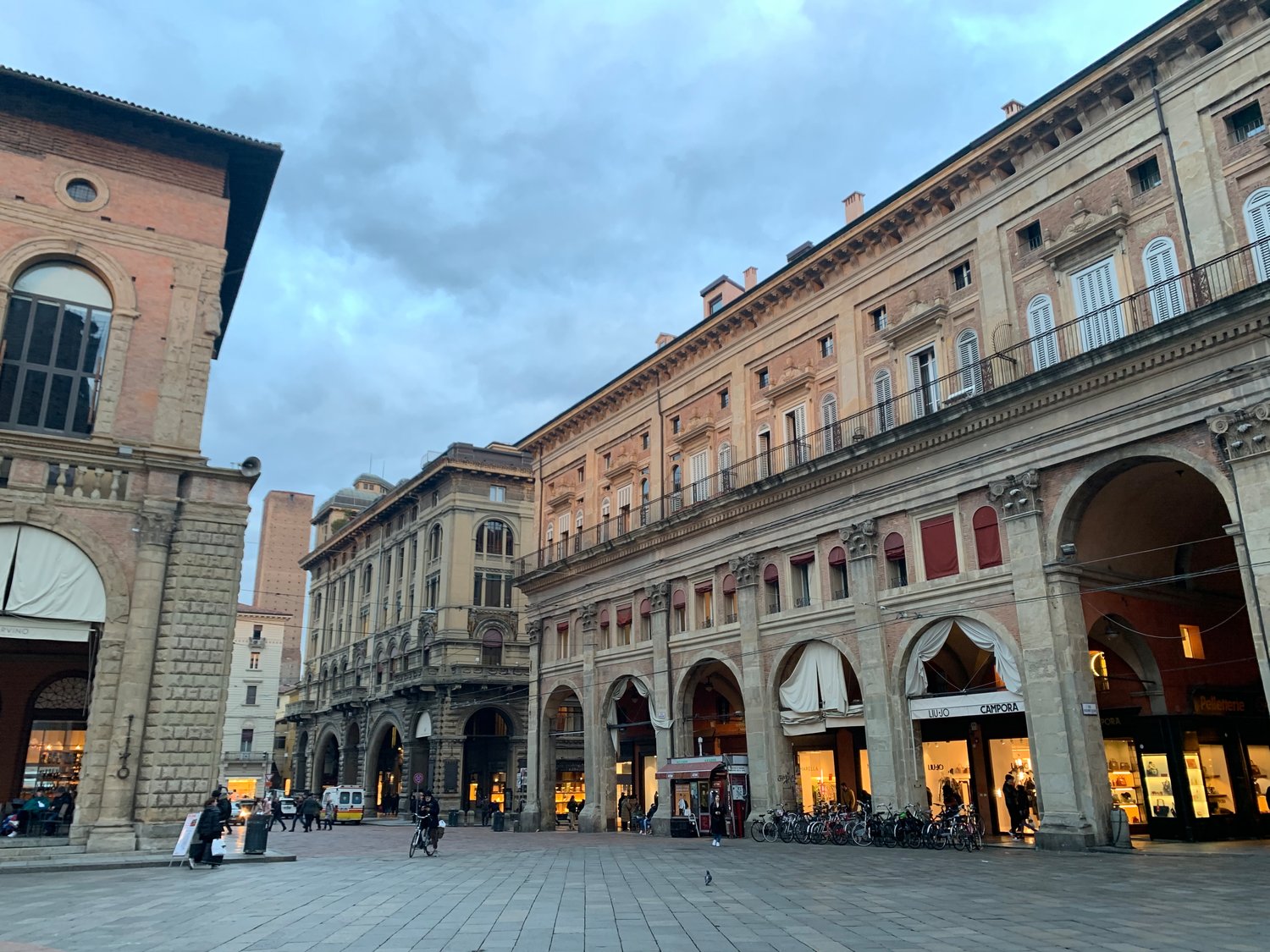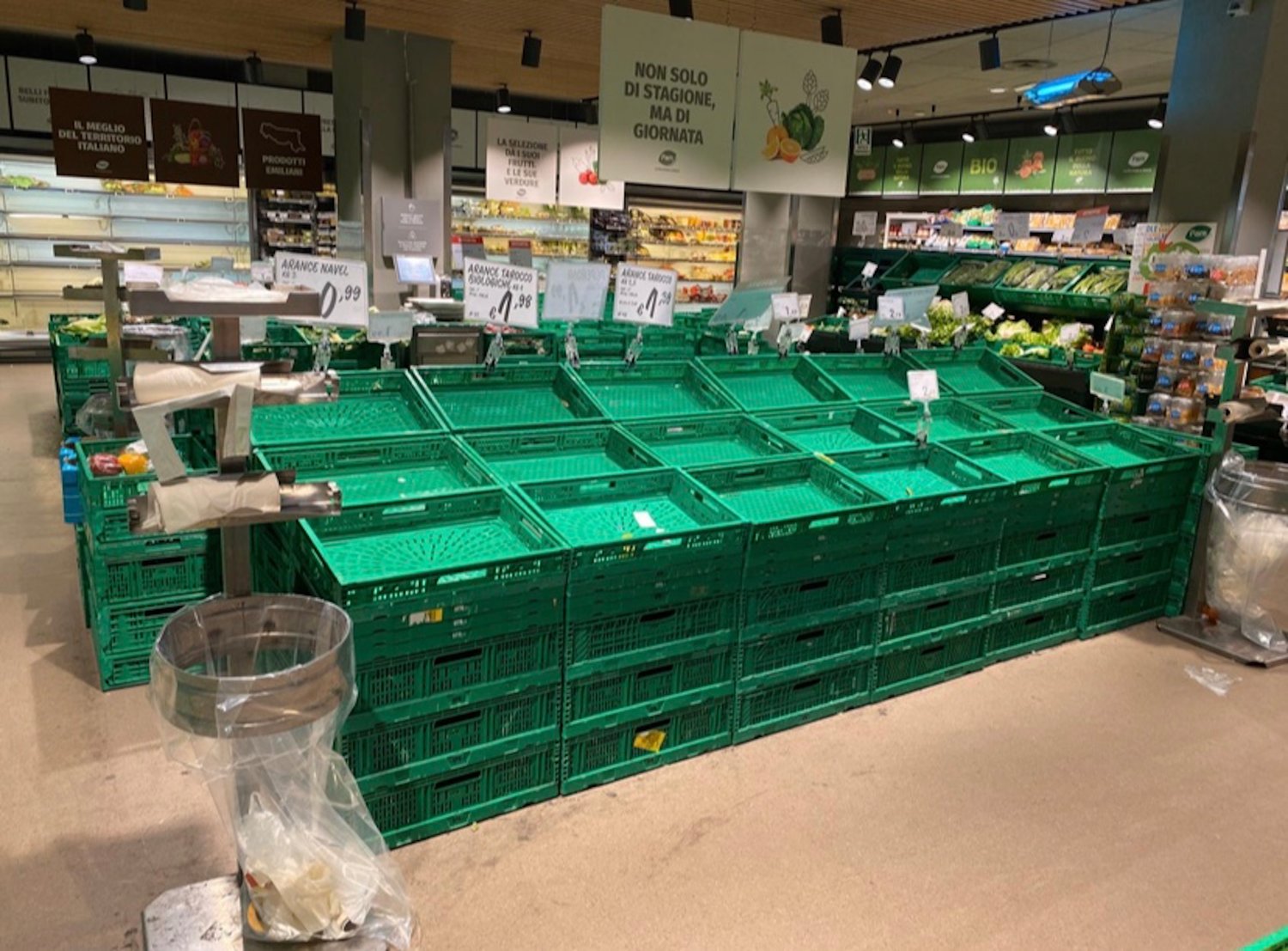Friday, April 19, 2024
 44.0°,
Mostly Cloudy
44.0°,
Mostly Cloudy
From Italy to New York: A college student recounts fleeing Covid-19 pandemic while abroad
The first six weeks I spent in Bologna were nothing short of a dream: I was studying abroad in the culinary capital of Italy, riding on the backs of Vespas and wandering the city’s portico-covered streets. Although other programs had been canceled due to the coronavirus, during my last two weeks in Italy, I felt safe.
At the time there were zero cases in Bologna, and conversations surrounding Covid-19 deemed it a disruption to daily life rather than an unimaginable threat. I could have never imagined that my study abroad experience would be cut short, ending with a stint in self-quarantine in my childhood bedroom.
On Feb. 23, the University of Bologna notified students that all academic activities would be canceled for the week. The closest of the outbreaks was in the northern region of Lombardy, which is about a two-hour drive from Bologna. Closures of the city’s schools, museums and libraries seemed like a necessary precaution to prevent further spread of the virus.
There was some initial panic among the residents in my neighborhood. When I went to the local grocery store the next day, I stepped into the aftermath of a post-apocalyptic raid: The clunky green produce bins were empty, the pasta aisle was wiped clean and a broken refrigerator vent lay to waste on the floor. After a day or two the store was quickly restocked, and the fear seemed to have subsided.
Politicians had urged residents to continue on as usual, so I picnicked in the grassy Giardini Margherita, surrounded by tightrope walkers, musicians and families. Crowds still formed at bus stops and people still packed themselves into bars. With time off from class, my roommates and I decided to go to Barcelona for the weekend.
While in Spain, Brown University sent an email to students in the Bologna program, which stated that it did not recommend the program’s cancellation. We were given the option to go back to the United States, but the majority of us had no intention of leaving voluntarily. I did have some friends, however, who expressed concerns about staying because of their chronic medical conditions.
By giving us the option to stay, Brown reinforced the idea that Bologna was safe. “This is an email for the people who are really afraid and just want to go back,” said Lucas Sanchez, a student from the program. “The situation’s just getting better.”
Students responded by heading to bars while my roommates and I popped celebratory champagne and danced around our hotel room. But the confidence we felt was quickly shattered. I was alerted via email that the U.S. Embassy had increased its travel advisory for Italy to Level 3, “Reconsider Travel” — the warning meant we would likely have to start packing our bags.
I grieved the loss of this experience, which I had been dreaming about for years, unaware of the wide-scale grief that was to come in the following weeks. My roommates tried to calm me down as I sobbed on the bathroom floor. For the next few hours I sat huddled with them on the bed, anxiously waiting as universities began to pluck students out of their program, wondering when we’d be next.
Four hours after I received the email saying we could stay, Brown sent a second email suspending our program. I was able to return to Bologna one last time before heading home to New York.
When I arrived in Bologna, a Red Cross worker wearing a red utility uniform checked my temperature at the airport, an indication that officials were trying to keep the virus at bay. At the same time, some tourist attractions, like Le Due Torri, were beginning to reopen.
To incentivize people to go out, the city distributed free “culture cards” offering discounts to different attractions throughout Bologna. On March 1, more than 10,000 people filled the streets to receive the card. On this day, Italy had nearly 1,700 coronavirus cases and 34 deaths.
It seemed like the situation in Bologna was improving just as I was about to leave. I realize now how irresponsible the promotion was, as it prioritized keeping the tourism industry afloat over the health of thousands of people. A little over a week later, those living in Italy were ordered to stay home indefinitely unless given special permission or buying groceries.
When I left on March 5, about 150 people in Italy had died from the virus. As of April 27, the death toll is nearly 27,000 nationwide.
The United Nations’ health agency had urged all countries to act against the rapid spread of the virus after a dramatic surge of new cases. When I arrived in New York, however, I noticed our safety procedures were lagging behind Italy’s.
Unlike the masked Red Cross worker that took my temperature in Bologna, the officials at Kennedy International Airport didn’t wear protective gear nor checked to see if I was ill. At the time 16 other students from my program, who flew into various airports all over the United States, told me they, too, entered the country unchecked, and that their airport officials were also not wearing masks.
The lack of intervention at the airport seemed to trivialize the severity of the situation. Had I not seen the Centers for Disease Control and Prevention’s guidelines or Brown’s email advising me to self-quarantine, I probably wouldn’t have known what to do.
The rapidly changing situation and lack of clarity were not exclusive to my experience in Italy — misinformation, as well as our government’s delayed response to this crisis, has made it difficult to know what to believe or how seriously to act. I saw pictures of friends hosting large gatherings at their colleges one day and being sent home the next. I’ve watched as the virus has quickly crushed New York state’s health care system, as we’ve reported more cases than any other country in the world.
While individuals should practice social distancing to curb the spread of the virus, a pandemic requires large-scale action achieved by rapid and comprehensible social policies. As someone who has traveled from one coronavirus hotspot to another, I’ve witnessed in detail what happens when governments fail to communicate clearly and underestimate the need for urgent action.
Victoria Caruso is an intern for the Herald Life. She is a junior at Brown University and a graduate of Mepham High School (Class of 2017). This article was originally published in The College Hill Independent, a Providence-based publication produced by students from Brown and the Rhode Island School of Design.
HELP SUPPORT LOCAL JOURNALISM
The worldwide pandemic has threatened many of the businesses you rely on every day, but don’t let it take away your source for local news. Now more than ever, we need your help to ensure nothing but the best in hyperlocal community journalism comes straight to you. Consider supporting the Herald with a small donation. It can be a one-time, or a monthly contribution, to help ensure we’re here through this crisis. To donate or for more information, click here.
Sponsored content
Other items that may interest you







